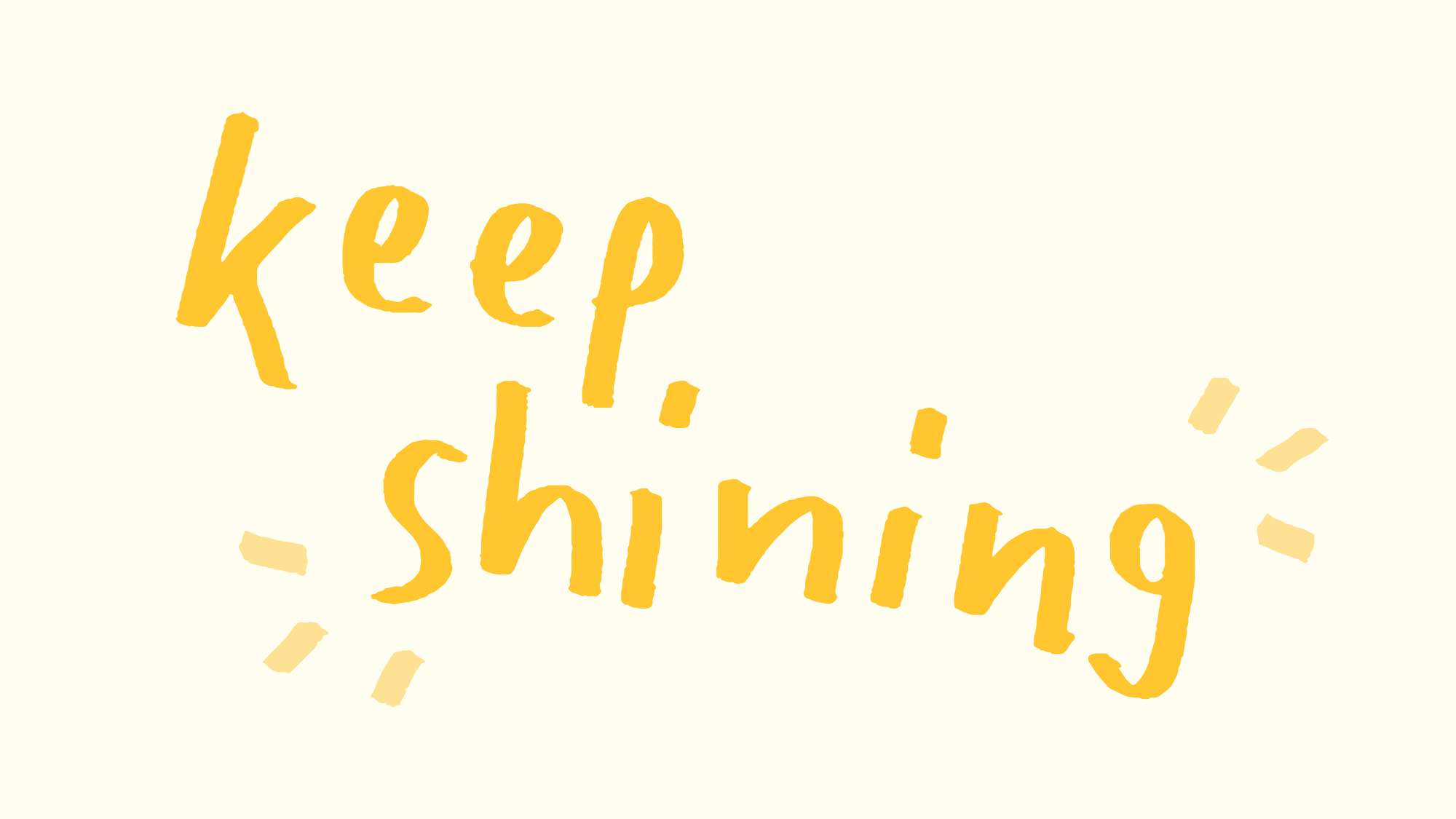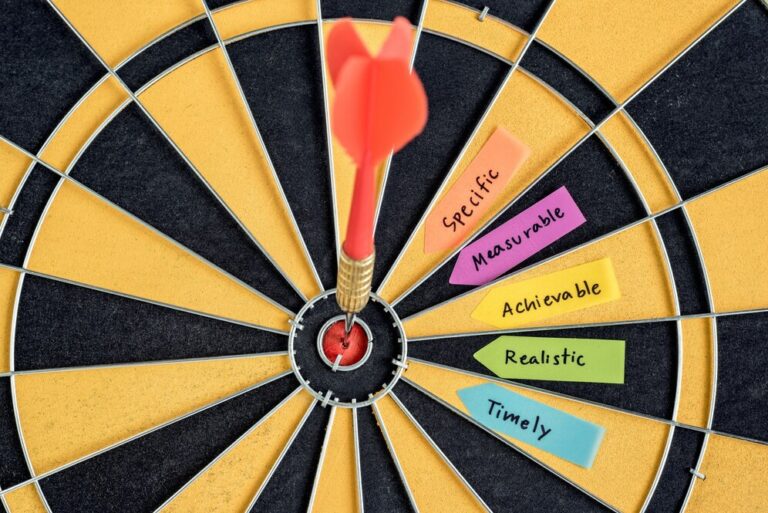Everyday habits that reinforce negative self-talk and how to break them
The crazy thing is that most of us don’t realize we’re training ourselves to think negatively every single day.
It’s not one big traumatic event that destroys our confidence – it’s the tiny, seemingly innocent habits that add up over time. The little things we do without thinking that slowly convince your brain you’re not good enough, smart enough, or worthy enough.
And you probably don’t even notice you’re doing them.
The invisible habits that are crushing your confidence
Habit 1: The instant apology reflex
You bump into a chair. “Sorry!”
Someone doesn’t hear you the first time. “Sorry, I said…”
You need to ask a question. “Sorry to bother you, but…”
You exist in a space. “Sorry for taking up room.”
By apologizing for basically existing you’re teaching your brain that your presence, needs, and voice are problematic. Every unnecessary apology reinforces the belief that you’re somehow always in the wrong.
The rewire: Start noticing these phantom apologies. Before you say sorry, ask yourself: “What exactly am I apologizing for?” If you can’t identify an actual wrongdoing, try this instead:
- “Sorry I’m late” becomes “Thanks for waiting”
- “Sorry to bother you” becomes “Quick question”
- “Sorry for asking” becomes “I need to discuss something”
Your go-to thinking should be that you deserve to exist, speak, and take up space without apologizing for it.
Habit 2: The comparison scroll
You open social media and immediately start the comparisons. She’s more successful. He’s more attractive. They’re traveling more. Everyone’s doing better than you.
Comparing yourself like this is feeding your brain with “evidence” that you’re behind, lacking, or not measuring up. Social media becomes a highlight reel comparison tool, something that makes you feel bad when it should be entertainment.
The rewire: Before you scroll, set an intention. Ask yourself: “What am I looking for right now? Connection? Inspiration? Distraction?” If you catch yourself comparing, change your self-talk:
- “They’re so much more successful” becomes “Their success shows what’s possible”
- “I wish I had their life” becomes “I’m building something that fits me”
- “Everyone’s doing better than me” becomes “Everyone’s on their own timeline”
The deeper shift: Other people’s wins don’t take away from your potential. Their reel that only shows the perfect parts of their life isn’t the full story, and your behind-the-scenes isn’t the final chapter. The fact that you’re reading this article now means that you want to improve, so be proud of yourself and know that you’re making progress every day.
If the comparison is what you’re struggling with the most, dive deeper into why you compare and how to stop.

Habit 3: The mental replay of embarrassing moments
We’ve all been there. You’re finally about to fall asleep, and your brain goes: “Hey, remember that embarrassing thing you said three years ago?” And there you are, wide awake, reliving every cringe detail. The trip in front of people. The awkward presentation. The moment you thought you’d forgotten.
What’s really happening: You’re training your brain to focus on your worst moments and use them as evidence of who you are. Replaying the worst moments reinforce shame and convince you that you’re flawed.
The rewire: When your brain starts the embarrassing moment slideshow, interrupt it:
- “That happened, it’s over, and everyone’s moved on.”
- “I’ve learned from that experience and I’m different now.”
- “One awkward moment doesn’t define me.”
Then actively recall a moment when you handled something well. Remind yourself of your wins, things you’re proud of and gazillion moments after that one awkward one, where you did amazing.
We need to realize that our worst moments are not our identity. They’re just moments. We get to choose which memories you give power to.
Habit 4: The “I should” spiral
“I should be further along by now.”
“I should be more confident.”
“I should have figured this out already.”
“I should be like everyone else.”
What’s really happening: You’re measuring yourself against impossible standards and timelines that don’t exist. “Should” statements create a feeling of not being good enough because you’re comparing your reality to some imaginary ideal.
The rewire: Every time you catch yourself “should-ing,” replace it with reality:
- “I should be further along” becomes “I’m exactly where I need to be with the information and resources I’ve had”
- “I should be more confident” becomes “I’m building confidence at my own pace”
- “I should have this figured out” becomes “I’m learning as I go, like everyone else”
Remember, there’s no universal timeline for human development. Your pace is your pace. What matters is that you try to be better every day.

Habit 5: The negative fortune telling
“This won’t work out.”
“I’ll mess this up.”
“They think I’m weird.”
“This will be awkward.”
What’s really happening: You’re programming your brain to expect the worst outcome, which affects how you show up. When you predict failure, you unconsciously behave in ways that make failure more likely.
The rewire: Challenge your predictions with equal positive outcomes:
- “This might not work out, or it might be exactly what I need.”
- “I might struggle with this, or I might surprise myself.”
- “They might think I’m weird, or they might appreciate my uniqueness.”
There’s no way your brain can predict the future – it just guesses based on past patterns. You can choose to predict more optimistically. This doesn’t mean you need to be fake and think everything will go super amazing. Just allow yourself to think about the possibility that things might just go completely ok.
Habit 6: The compliment dismissal
Someone says you did a great job. You respond: “It was nothing” or “I just got lucky” or “Anyone could have done it.”
With dismissing compliments like this you’re literally training your brain to reject positive feedback. Every deflected compliment reinforces the belief that you don’t deserve recognition or that your efforts aren’t valuable.
The rewire: Practice accepting compliments with a simple “Thank you.” That’s it. No explanations, no deflections, no minimizing.
If that feels too hard, try: “Thank you, I worked hard on that” or “Thank you, I appreciate you noticing.”
Habit 7: The all-or-nothing vocabulary
“I always mess up.”
“I never do anything right.”
“I’m terrible at everything.”
“Nothing ever works out for me.”
What’s really happening: You’re taking one moment and turning it into permanent character traits. This absolute language convinces your brain that change is impossible because you’re broken.
When you catch yourself using words like “always,” “never,” or “everything,” get more realistic:
- “I always mess up” becomes “I made a mistake in this situation”
- “I’m terrible at everything” becomes “I’m still learning this particular skill”
- “Nothing ever works out” becomes “This didn’t work out the way I planned”
Remember, you are not your mistakes. You are not your current skill level. You are someone capable of growth and change.

Habit 8: The energy vampire conversations
You know when you’ve had a conversation with someone and then you fall into endless analysis? What they meant, whether they’re mad at you, or why they didn’t text back? The ones where you create entire storylines in your head about other people’s motivations?
Replaying conversations like this means you’re spending your energy on things you can’t control, reinforcing anxiety and self-doubt. The worst thing is that you lose objective thinking and usually the conclusion is that you’re the problem.
The rewire: Set a time limit for analyzing other people’s behavior. Give yourself 5 minutes to wonder, then move on. Ask yourself: “Is this something I can actually control or influence?”
Other people’s thoughts, feelings, and actions are about them, not you. Your job is to manage your own energy, not decode everyone else’s.
Habit 9: The perfectionist paralysis
You don’t start the project until you know it’ll be perfect. You don’t share your idea until it’s flawless. You don’t try new things unless you’re guaranteed to be good at them.
What’s really happening: You’re teaching your brain that your worth depends on flawless performance. This does two things: First, it creates a fear of mistakes so strong that you stop taking action altogether. Second, you’re setting impossible standards that you’ll never achieve – because perfection is unachievable – which makes you feel even worse about yourself.
The rewire: Embrace “good enough” as a starting point. Set messy deadlines. Share imperfect work. Celebrate attempts, not just successes.
Try this mantra: “Done is better than perfect, and perfect is the enemy of progress.”
Your value doesn’t come from perfect performance. It comes from your willingness to show up and try.
These invisible habits are the mechanics of self-criticism. Want to understand why you developed them and how to break the cycle? Read The real reason you’re hard on yourself (and how to stop).
The daily habits that rewire your mind for confidence
Now that you know what’s sabotaging you, here’s how to build yourself up instead. These micro-habits might seem small, but they create massive shifts when you practice them consistently.
The morning voice reset
Before you do anything else in the morning, spend 30 seconds setting your vibe. Ask: “What kind of inner voice do I want to guide me today?” Then choose one supportive phrase to anchor to:
- “I’m capable of handling whatever comes up.”
- “I trust myself to make good decisions.”
- “I choose growth over comfort today.”
This prepares your brain for supportive self-talk instead of defaulting to criticism. Need more supportive phrases? Check out these confidence affirmations that actually build confidence for a complete collection of daily affirmations
Catching negative thoughts in the moment
The moment you catch negative self-talk, use this three-step process:
- Pause and name it: “That’s my inner critic talking.”
- Question it: “Is this helpful or just mean?”
- Replace it with something more accurate and supportive
Practice this enough and it becomes automatic. Your brain learns that negative thoughts don’t get to run unchallenged.
Struggling to find replacement thoughts that feel genuine? These self-compassion affirmations give you the exact language for speaking to yourself with kindness instead of criticism.

Building your evidence file
Keep an ongoing list of your wins – both big and small. Not for bragging, but for ammunition against your inner critic:
- Problems you solved this week,
- Compliments people gave you (that you actually accepted),
- Moments you handled challenges better than before,
- Times you chose yourself over people-pleasing.
When self-doubt hits, you have real evidence to counter it instead of just hoping positive thoughts will stick.
Upgrading how you talk about yourself
Notice how you speak about yourself and consciously upgrade weak language:
- “I’m just…” becomes “I am…”
- “I can’t…” becomes “I’m learning how to…”
- “I’m bad at…” becomes “I’m developing skills in…”
- “I have to…” becomes “I choose to…”
Your words shape your reality. Choose words that build your confidence instead of undermining it.
Protecting your mental energy
Start treating your mental energy like a finite resource. At the end of each day, audit:
- What conversations left me feeling drained vs. energized?
- What activities supported my confidence vs. undermined it?
- What thoughts served my growth vs. kept me stuck?
Then adjust tomorrow accordingly. Stop doing things that consistently drain your confidence unless they’re absolutely necessary.
Evening mind reset
Before sleep, clear your mental space:
- Acknowledge one thing you handled well today,
- Forgive yourself for any mistakes without dwelling on them,
- Set tomorrow’s intention for how you want to treat yourself,
- Release any negative thoughts so they don’t follow you into sleep.
This prevents negative patterns from compounding overnight and gives you a fresh start each morning.
The compound effect: Each supportive habit weakens the negative ones. Each time you choose self-support over self-sabotage, you build evidence that you can trust yourself to be on your own side.

The truth about breaking these habits
I’m not going to pretend this is easy. These habits exist because they’ve been protecting you in some way, even if they’re not serving you anymore. Once you’ve identified the negative habits that reinforce negative self-talk, you need new ways to talk to yourself. These 7 reframes will help you transform your inner critic.
The apology habit? It keeps you from conflict.
The comparison habit? It motivates you to try harder.
The perfectionist habit? It protects you from criticism.
Your brain developed these patterns for good reasons. But what protected you then might be limiting you now.
The goal isn’t to never have negative thoughts. The goal is to stop letting negative thoughts have you.
Every time you catch yourself in one of these patterns and consciously choose a different response, you’re literally rewiring your brain. You’re proving to yourself that you have more control over your inner world than you thought.
And that’s where real confidence begins.
Imagine six months from now, these new habits are so automatic that you don’t even think about them. You naturally speak to yourself with kindness. You automatically challenge negative predictions. You instinctively accept compliments.
Your inner voice becomes your biggest advocate instead of your harshest critic.
That’s not wishful thinking – that’s what happens when you consciously change unconscious patterns.
Your brain is listening to everything you think and say. Make sure it hears something worth believing.
The conversation in your head is the most important conversation you’ll ever have. It’s time to make it a good one.
Ready to completely rewire these patterns? My workbooks give you the exact daily practices, challenges, and mindset shifts to transform your inner voice from critic to coach. Because the way you talk to yourself determines the life you create.







